Who are you and why should I care?
This is a very pointed question, but I don’t mean to be harsh.
The truth is, when it comes to building a personal brand, it’s the question on everyone’s lips.
What’s your brand about and what value will it add to my life?
Building a brand isn’t about feeding your ego.
It’s about giving yourself more opportunities to help and connect with people in your industry.
And one of the best ways to build a brand is through blogging.
A blog is a hub for your advice.
It also has the added benefit of helping you rank on search engines.
But building a personal brand through blogging is about more than just setting up a website and calling it a day.
There’s a lot more that goes into the process than writing.
Let’s break down how you can go beyond the content itself to use blogging to build your brand and extend your social reach.
1. Build your brand (and keywords) around a niche
How do you want to be known on the Internet?
I wanted to be known as an online marketer.
I live and breathe marketing.
Every email, webinar, ad, and post I create revolves around it because that’s my niche.
Take a look at a screenshot of my blog, for instance.
It’s all marketing, all the time.
Sometimes I add personal stuff, but even then it’s related to marketing.
So what’s your thing? What do you want to be known for?
Are you the friendly, neighborhood guru? Or are you more of a tough-as-nails mentor?
Look at people like Tim Ferriss (the friendly guru) or Garrett White (the tough mentor).
They’ve both done a great job of positioning themselves in a niche.
Whatever your niche is, it has to be something you know and understand.
And you have to be able to write about it. Because you will be writing about it a lot.
When choosing your niche, focus on the keywords.
Is your niche searching for expertise like yours? Look at the search volume. Look at the queries.
Keywords will tell you whether or not people are seeking out advice in your niche already.
To do some basic keyword research, start simple.
Come up with a couple of keywords and use Google to see what pops up.
If I type in “online marketing,” for example, which are my niche keywords, I’m the first two results that appear after the paid ads.
See who pops up and jot down their names or bookmark their sites. These are your competitors.
You can then use other keyword tools to find relevant keywords to your niche.
I like to use Google Keyword Planner.
Along with a keyword list, I get average monthly searches, competitive keywords, and suggested bids.
This helps me know exactly who is looking for my help and how I can reach them.
Keep in mind that I’ve been doing this a long time, and my whole brand revolves around “online marketing,” so that’s why I rank for it.
You might not rank for highly-competitive keywords right out of the gate, and that’s OK.
Find your niche, identify your niche’s keywords, and use them everywhere.
Once you’ve built up your brand, you’ll start ranking for the things you want.
2. Use personality to create a brand voice
When Tim Ferriss was asked about building his brand, he said, “I try hard to be myself, despite the public flak, and to be the best version of myself possible.”
This mindset shows through in a lot of what he does with his brand.
Take a look at this example from his personal blog:
His brand revolves around the idea that you’re getting him.
His advice. His wisdom. His personality.
But he actually outsources almost all of his work to virtual assistants.
All except for his writing.
Why? So he can stay true to his brand voice.
Not everyone will follow the same path, but Tim has built his brand on the idea of authenticity.
His audience knows that he’s the guy who’s been there and done that, and that he has a lot to say about it.
His personality is also his brand voice.
When you’re starting in the blogging world, you have to have your own brand voice.
This means infusing bits and pieces of your personality into your writing.
You have to understand that people are coming to your brand because of you.
If they wanted any old guru, they’d go to any old guru.
What you have is unique, and you need to interject your personality into your branding.
Take a look at this example from another popular blogger, James Clear.
James’s brand is built on storytelling. He tells you this up front when you come to his blog.
“In the end, my work ends up being one-part storytelling, one-part academic research, one-part personal experiment. It’s a colorful blend of inspirational stories, academic science, hard-earned wisdom.”
Stories are his brand voice.
When building your own brand voice, take your own personality into consideration.
Maybe you like to speak more casually to your readers, like Karen Marston from Untamed Writing.
Or maybe you thrive on professionalism.
Whatever makes you “you,” put that into everything you do on your blog.
3. Design your blog’s theme around your brand
Once you’ve identified your niche and your brand voice, next comes the hard part: building your actual blog.
Design is one of those things that can really work for you or against you.
Since my whole focus is on helping people with online marketing, I don’t clutter up my site with anything unrelated.
Take a look at one my blog posts, for example:
If you’re not reading my content (which is about online marketing), you’re looking at ads for my online marketing courses.
Or you’re browsing my sidebar, which has information about online marketing:
Wherever you go on my site, the only thing you will find is information about online marketing.
Because that’s what I’m all about.
I also keep my site really clean and easy to navigate to make a good first impression.
Studies show that 94% of the time, someone’s first impression is based on design. It only takes 50 milliseconds for that decision to be made.
So your site’s design is just as important as your brand voice.
One example of brand-related design done well is Seth Godin’s site.
He knows that people are there to hear from him, so he’s made himself quite literally the focus of his page.
You have to click his head to read his blog.
Once you get to his blog, he keeps things pretty simple.
Notice that you can click on his head again in the corner of the screen. You then get more links to helpful stuff.
His regular navigation will lead you to all the goodies on his site, of course.
But it’s more than just clicking links.
You’re having fun doing it.
That’s what design should be all about – getting people to interact with you.
There are two million blog posts published every day.
You’re going to need your blog to stand out in some way.
Design is a really simple way to do that.
You want to start by having your own website with your own name.
Why your own name? So people make the connection.
You’ll notice that most of the examples I’ve listed so far (Tim Ferriss, Seth Godin, myself) all use their names as the domains as well as social media handles.
It’s the first thing you will see if you Google each of our names:
I write for a lot of other blogs, too.
But mainly I’m Neil Patel. So I use my name for my brand.
I want you to come to my site first and foremost because I want that personal connection with you.
That’s why it’s called a personal brand.
So start by building a website with your name and use a design that reflects who you are.
4. Consistently write a lot of relevant content
If you’re not engaging with regular content, you’re not going to build a big brand.
I’ve written about this in more detail before, but the key here is volume and consistency.
You want to post a lot of content because:
- You have advice that people need to hear.
- Having more content improves your SEO.
- There is a lot of competing content already out there.
- The more you write, the more you refine your brand.
- The more you refine your brand, the bigger and better it will be.
I know that producing quality content on a regular basis is daunting.
There’s plenty of content out there already, and that will only continue to grow.
You have to come up with new ideas and spend time writing, editing, and posting. Then, you can use social media to share and engage with your audience.
That’s no easy feat.
But it’s important that you do it consistently if you want to build your brand. You should aim to publish at least 2-3 times per week, if not more, depending on your goals.
I do a lot of stuff to stay active and engaged.
I make videos. I blog. I host webinars. I speak at conferences.
But, I’m not saying you have to be “on” 24/7.
If you can engage on other social media platforms, that’s even better.
Look at Gary Vaynerchuk, who runs VaynerMedia, for example.
He has a successful personal brand geared toward entrepreneurs.
He’s active on social media almost daily in one way or another.
If you go to Google Trends, you can see the popularity of his brand over time:
Even though his engagement levels are up and down, he still actively posts on social media all the time.
He has 812k+ subscribers on YouTube:
He also has over a million followers on Twitter (and he Tweets a lot):
And he posts unique Facebook videos every month:
The guy stays engaged with his audience on a regular basis. He engages on multiple platforms with multiple media types.
If you want to build a brand like Gary’s, you have to be doing the same thing.
5. Extend your reach with guest blogging
The other thing that I do a lot – and that I recommend you do – is guest blogging.
Guest blogging is a great way to build your brand and grow your following.
I once asked Jon Morrow of GuestBlogging.com what he would do if he had to grow his brand from scratch and he said the following:
“If you wiped my mind, and I had to start over TOTALLY from scratch, I would probably start with guest blogging.”
For him, guest blogging not only improves your writing skills, but it builds your core audience.
I couldn’t agree more.
Another thing that guest blogging does is form relationships with other influencers.
When we asked Lewis Howes his advice for building an online presence, he said that making friends provides the biggest ROI for your time and money.
One of the best ways to do this is through either emailing influencers directly or building relationships through social media.
Lewis uses LinkedIn as a way to reach out to other influencers.
He leverages these groups to find influencers for his podcast, The School of Greatness.
The one thing you should know about guest blogging is that you still have to have somewhat of a following for it to really work well.
When you post somewhere like Entrepreneur or Forbes, you want something to point those followers back to.
Take a look at my contributor account on Forbes:
I list my other brands. I have links to my social media. I talk about my personal stories.
I’m giving people something of value when I guest blog, but I also make sure that I’m pointing them somewhere they can connect with me further.
You can grow a brand with just guest blogging.
I’ve seen it happen.
But if you really want results, you should be using guest blogging as a way to extend the reach of your current blog.
Guest blogging is the perfect way to create backlinks to your site, which will help your ranking on Google.
It can do wonders for your SEO.
The more that you post on your own blog, the more you do for other blogs, and the more your name is out there on the Web, the bigger your brand will be.
When you Google my name, for example, you see my website along with my other accounts:
You can find me on Crazy Egg, Quick Sprout, Entrepreneur, Forbes, and so on and so forth.
But the number one result (and the one that I want the most traffic to) is my site.
Everything points back to my personal brand.
I use guest blogging as a way to create buzz and links back to my site.
And it works beautifully.
So once you have a somewhat-established brand and you’re hoping to extend your reach, start guest blogging.
It will really do great things for your marketing efforts.
Getting started won’t take much of your time, but it will pay off in the long run. Build a list of strategies and start executing them.
How long will it take to build a brand with blogging?
I know it may seem like you’ll never get there, but you will. It just takes time.
Even I didn’t build my entire audience overnight.
You’re not going to get results immediately. On average, it will probably be at least a 12- to 18-month journey before you start seeing results.
Or as BrandingETC puts it, the same amount of time as a gestating whale:
Basically, you need a lot of patience and persistence (and time) to grow.
That’s why you have to post consistently.
You also need a sense of delayed gratification.
Blogging is the sort of thing that won’t make you famous immediately. Nor should it.
Your blog should provide people real value. It’s not a way to get rich quick.
As I said, it’s not a way to feed your ego.
It’s also important to remember that you can’t always measure the success of your brand by the number of followers.
More often than not, you will know you’re successful based on the depth of your connections.
Relationships with other influencers, networking, and growing a following all take time and intent to connect personally.
You can always grow a brand quickly.
But if you want to stick around for the long haul, you have to put in the hours.
Conclusion
So you want to build your brand.
It takes some work, but it can be done.
And one of the best ways to do it is through blogging.
First, pick a niche. Research keywords. Fill a void that needs to be filled.
Write a lot. Strive for high-quality, valuable content.
Make connections. Focus on quality.
Get your name out there.
That’s how you build a brand that will not only open doors for you but will also provide value for the people following you.
Don’t worry about the time it takes to grow your brand, either.
As Earl Nightingale once said, “The time will pass anyway.”
What niche do you see yourself going after for your personal brand?

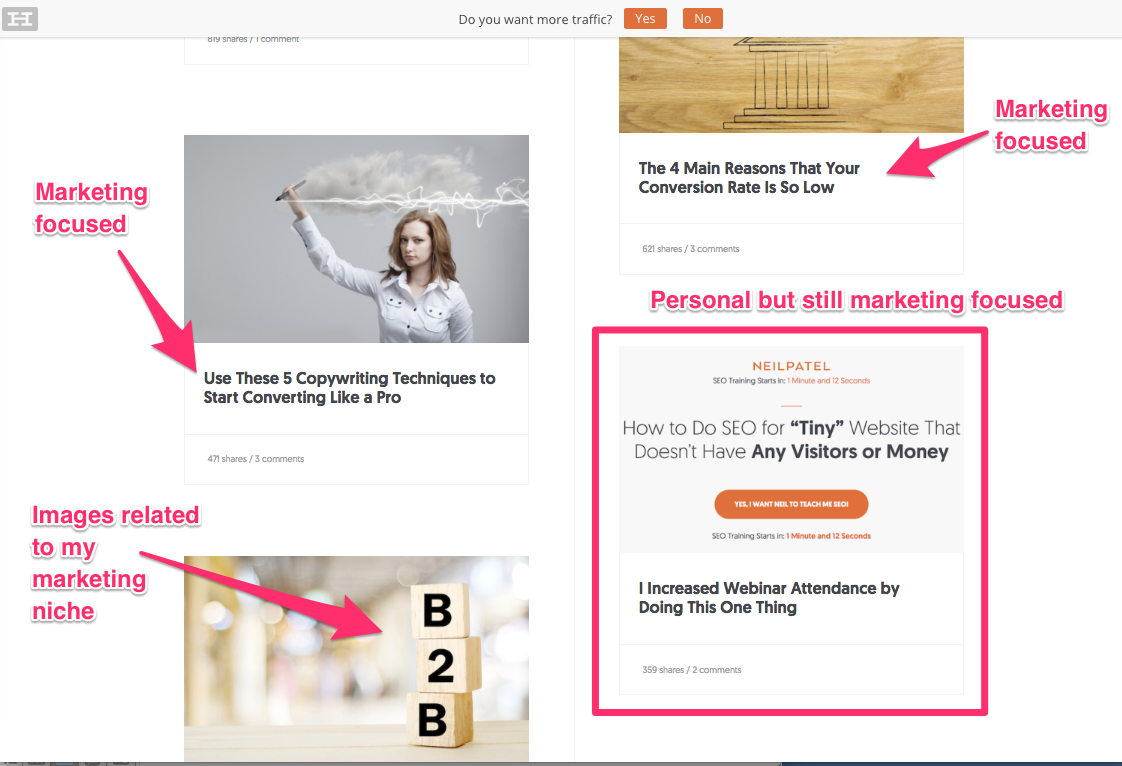
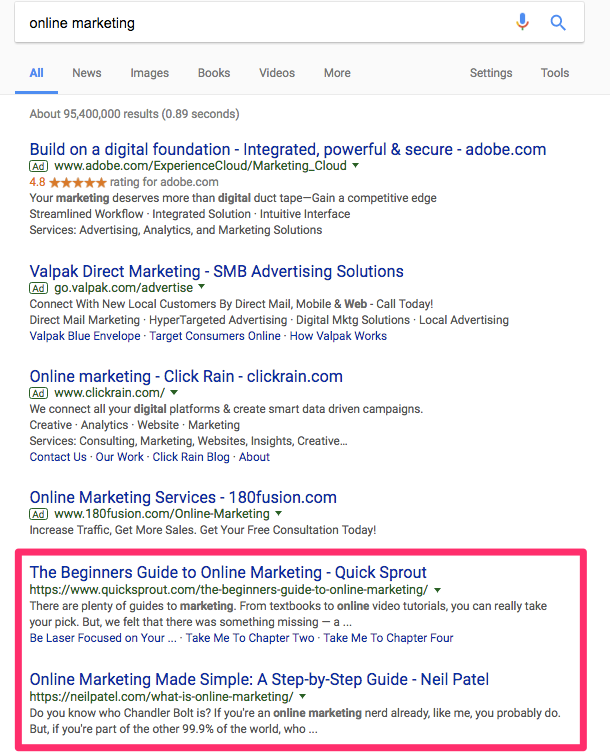
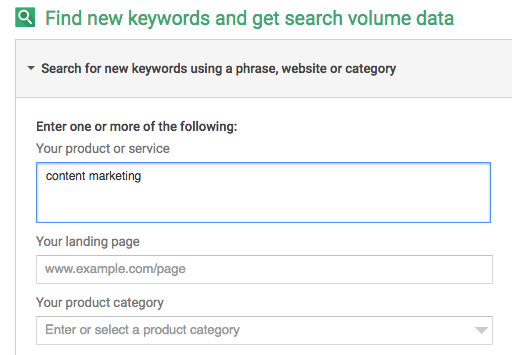
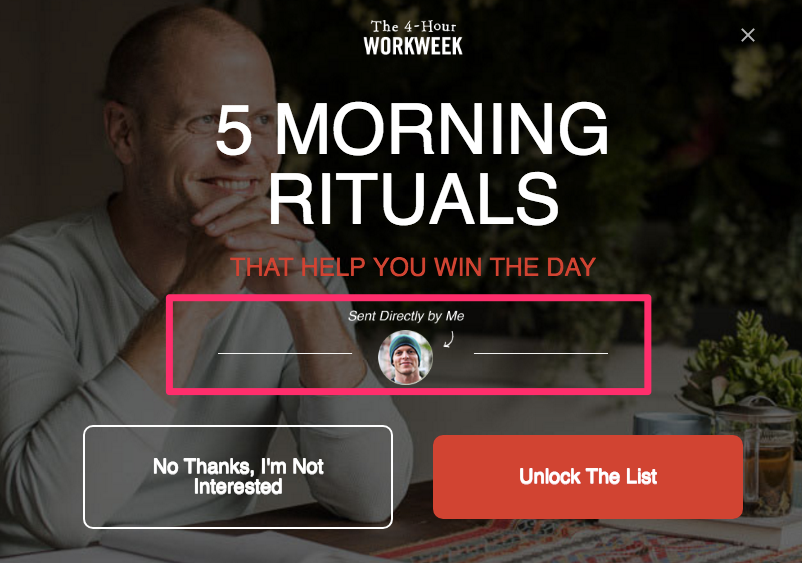
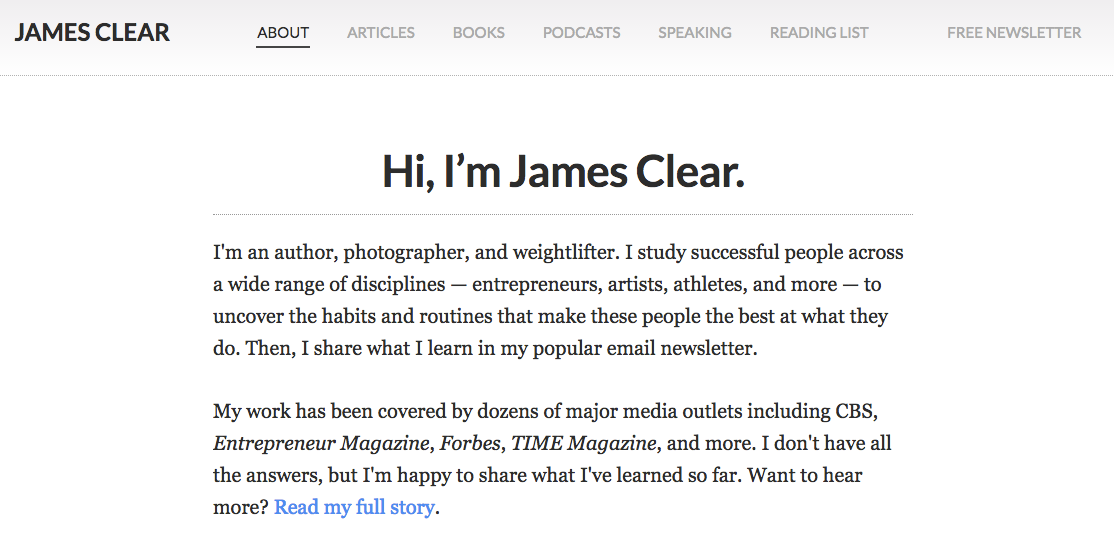
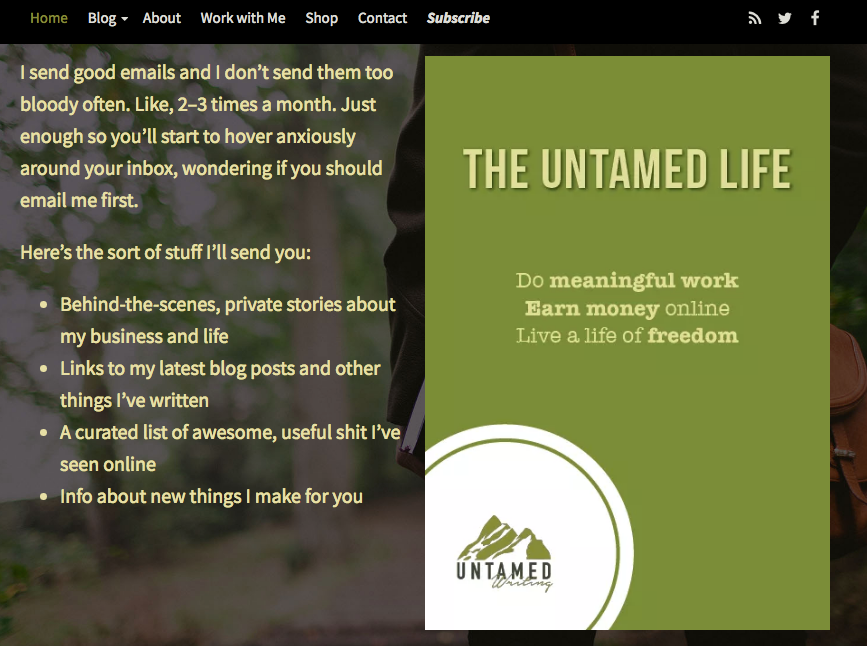
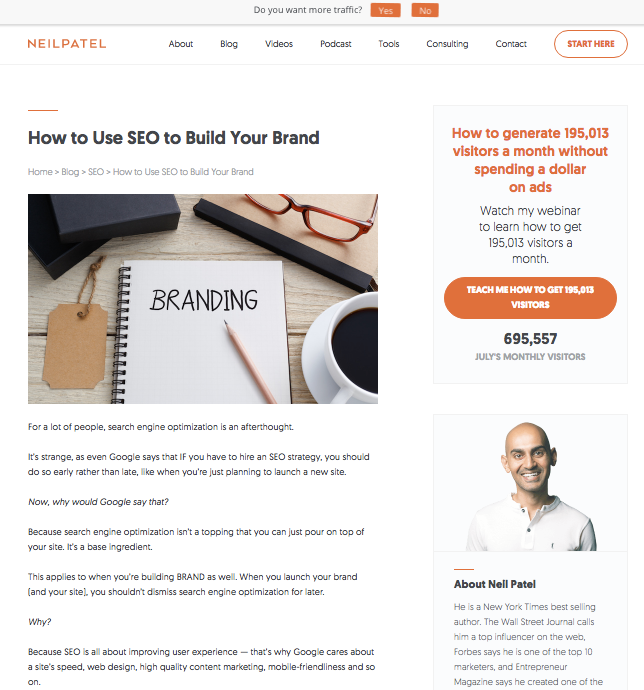
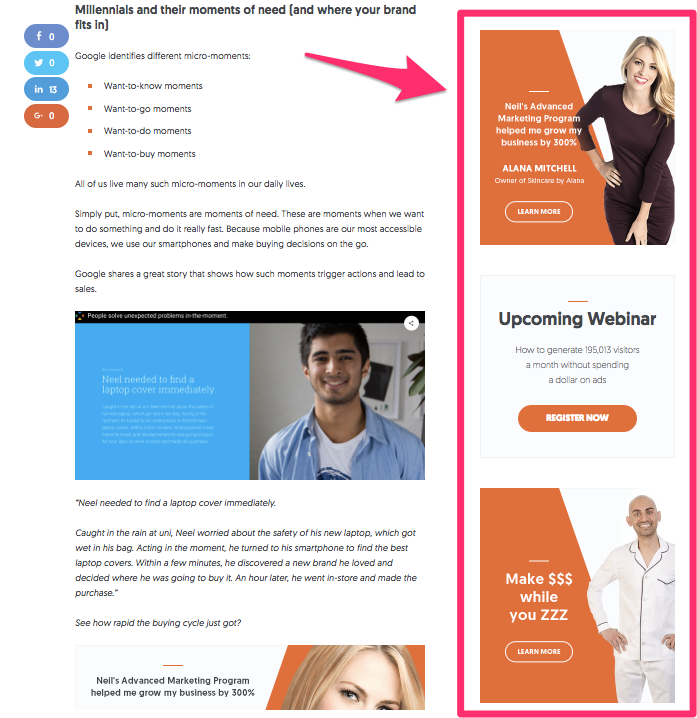

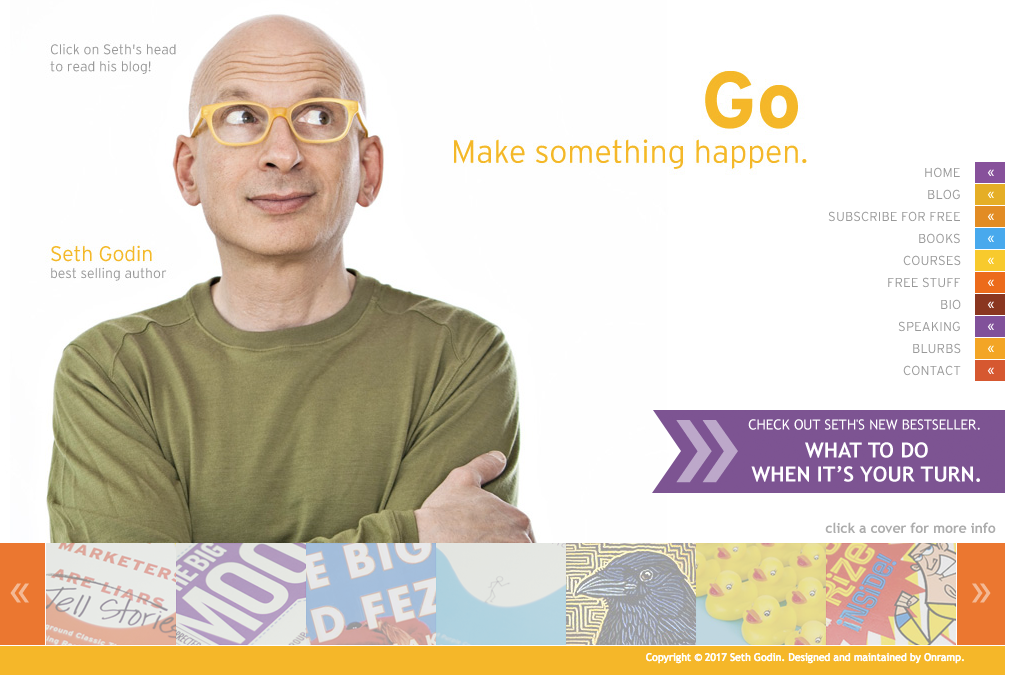
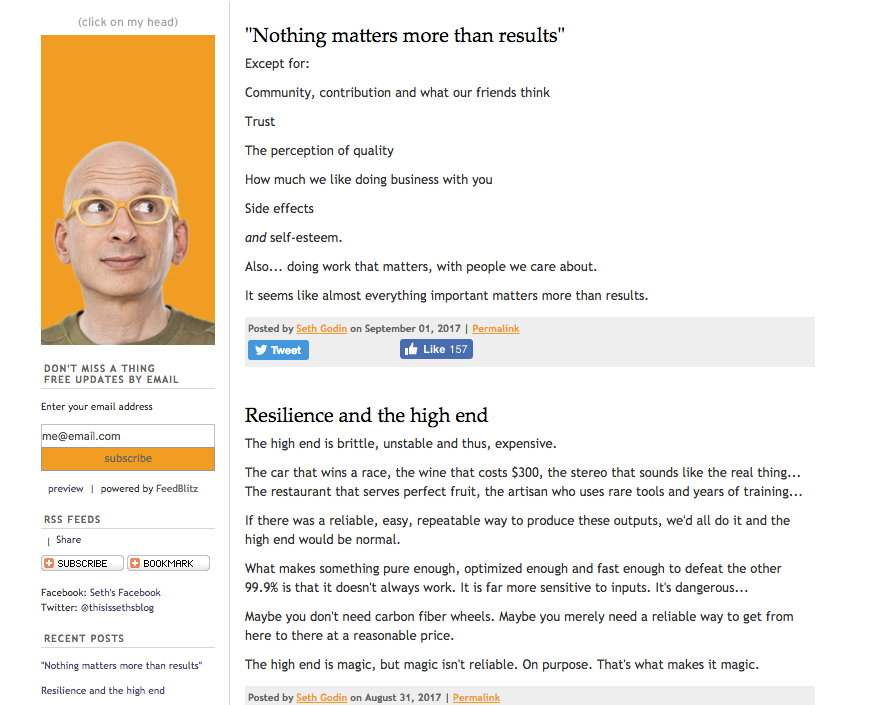
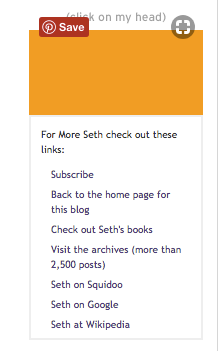
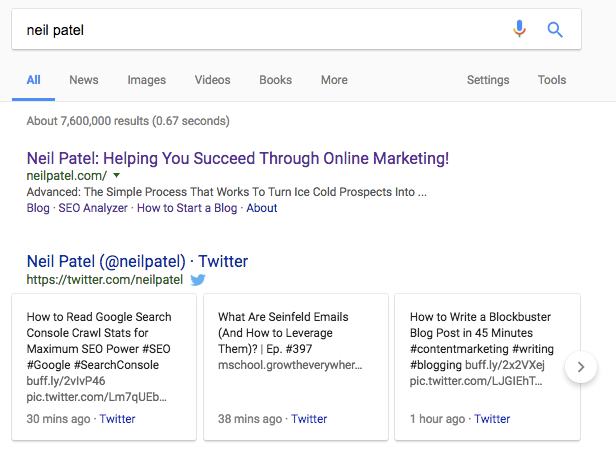
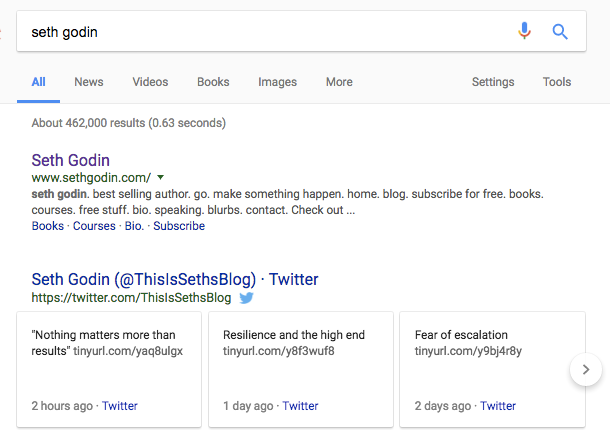
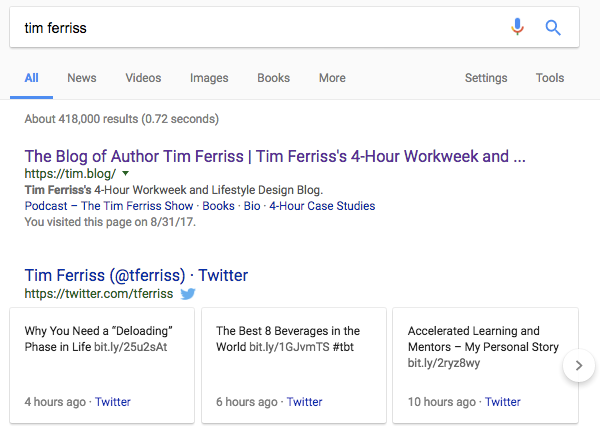
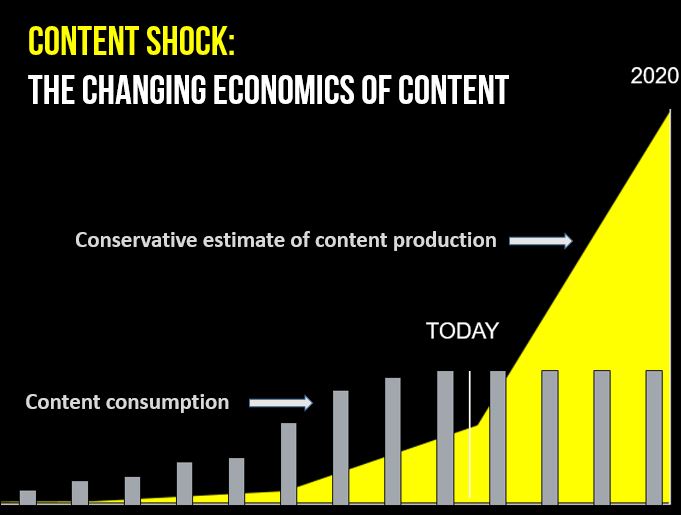
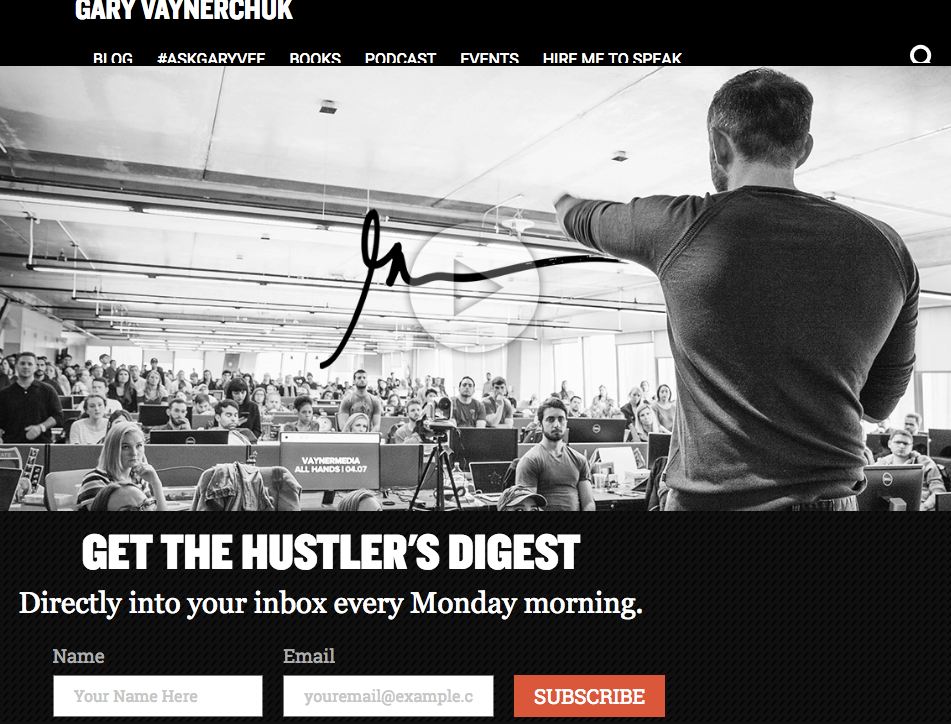
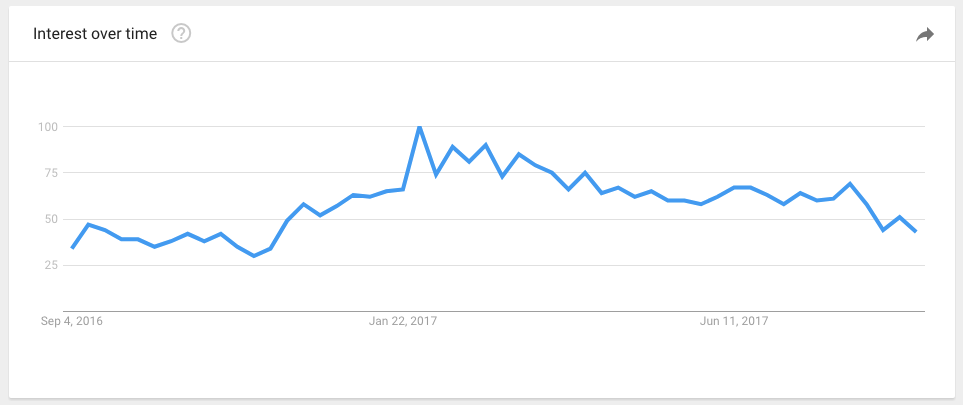
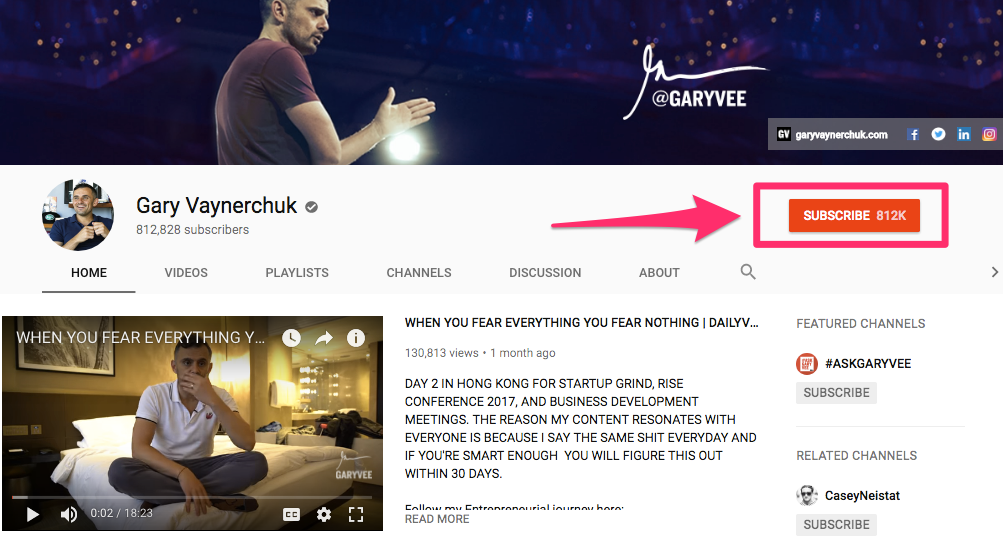
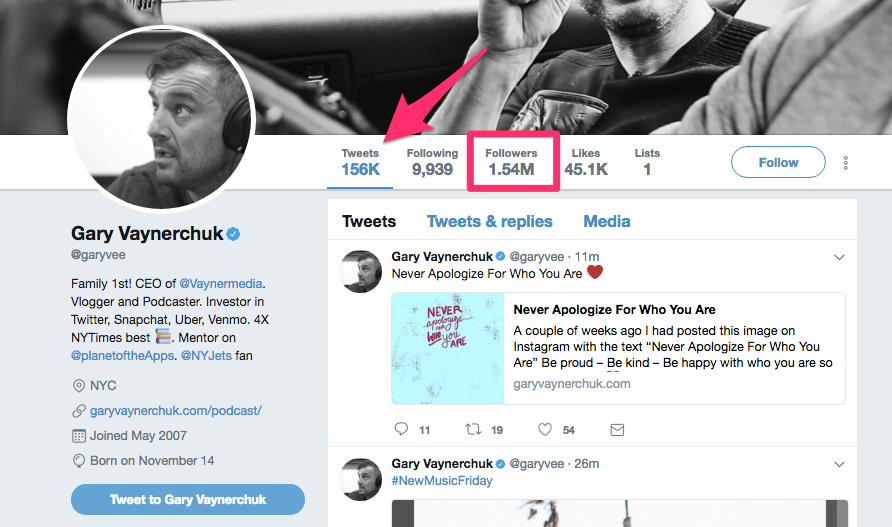


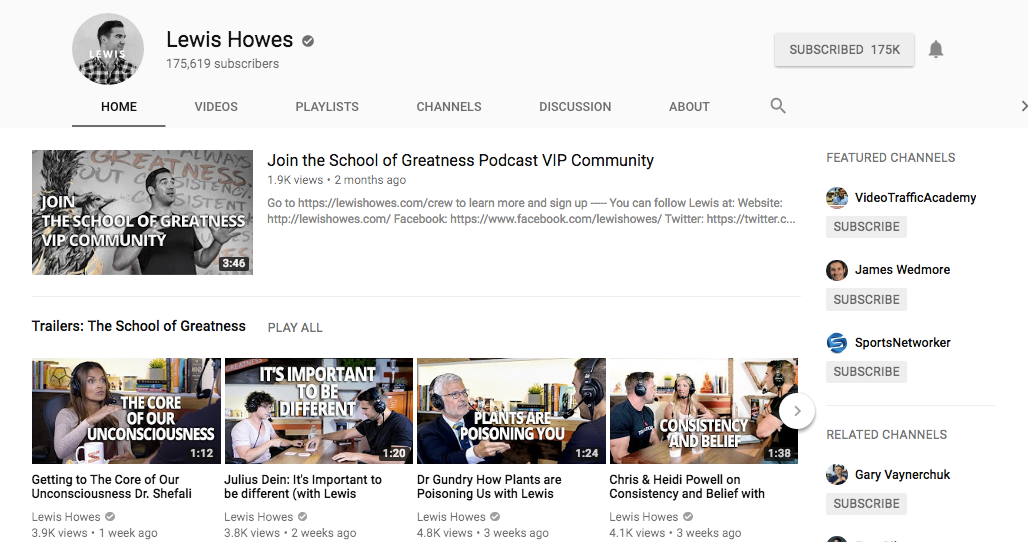
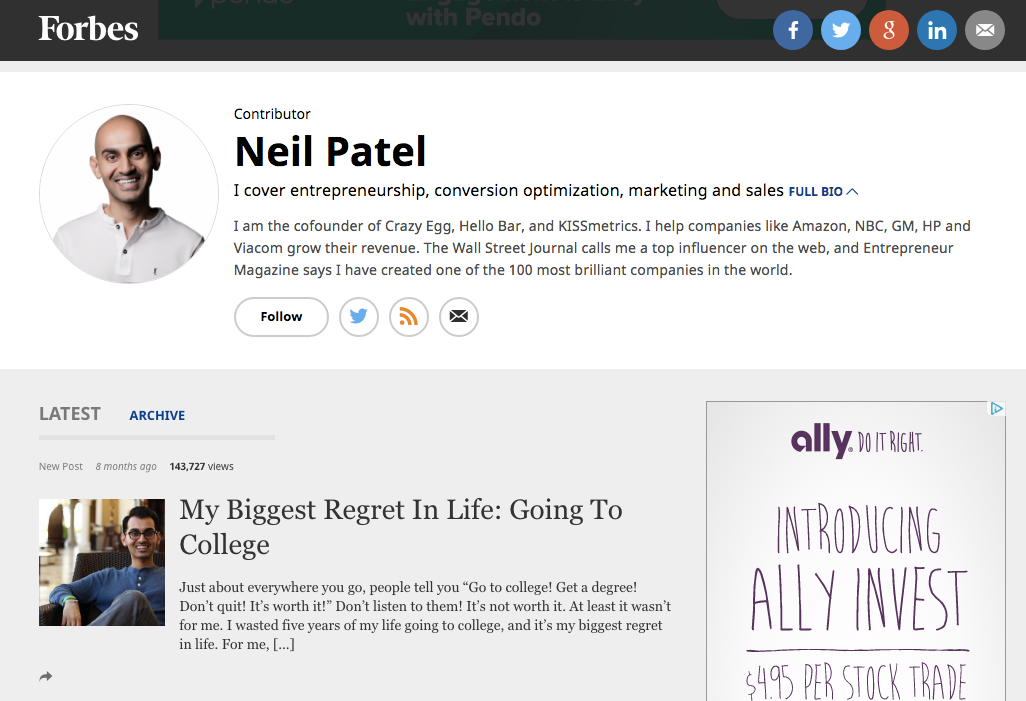
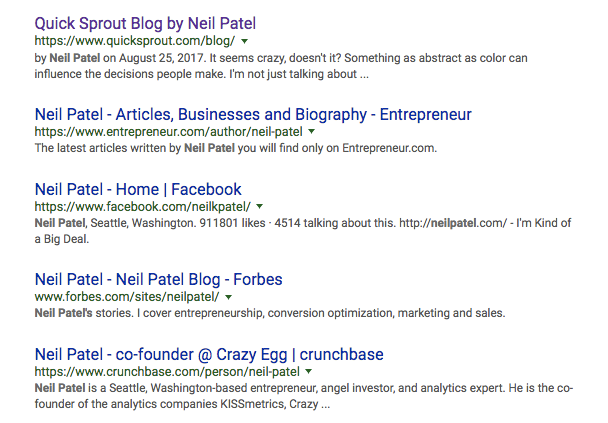

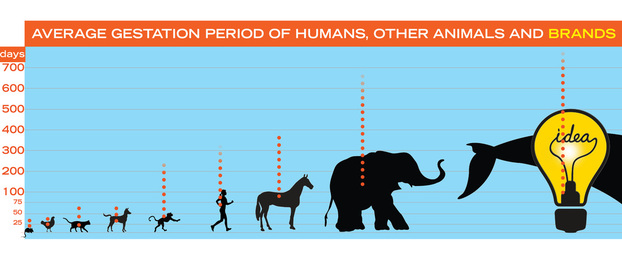
Comments (10)